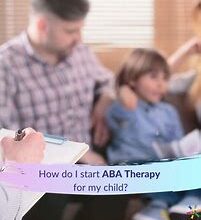
If you are on a quest to find appropriate mental health support in Colorado’s picturesque area, this guide offers essential advice. Your journey might involve picking a proficient consultant in Applied Behavior Analysis (ABA), and, honestly, it can be daunting. By understanding the different methods of a trained professional, individuals and families can navigate this process more smoothly.
Finding a local professional who is OBM (Organizational Behavior Management) certified within the Rocky Mountain region can be overwhelming due to an array of factors. Despite the abundance of specialists, pinpointing who aligns best with your unique needs requires a clear understanding of the field, as well as your own requirements. We walk you this intricate process by highlighting pivotal factors that must be kept in mind.
Applied Behavioral Analysis is a well-recognized and effective treatment in managing behaviors. It utilizes understanding and techniques to assist in improving specific facets of behavior, especially in children. Therefore, recognizing experienced professionals within this discipline, particularly those who specialize in managing health, becomes a top priority for anyone seeking such services in areas like the Centennial State.
While proximity may be valuable when considering health specialists, in the end, it’s about more than just geography. Therefore, parents or caretakers within Pikes Peak region not only need to spot suitably qualified ABA professionals near their household, but must also match them to their child’s needs, caregiver expectations, and family dynamics. Consequently, this guide will also help you take these diverse factors into account when you on a mental health service provider within the pleasant city nestled in Colorado’s Rocky Mountains.
Importance of Selecting an Appropriate Autism Behavior Analyst in this Colorado City
Discovering a professional who harmonizes with your child’s distinctive needs is crucial in any circumstance. Yet, in the domain of behavioral analysis for those on the autism spectrum, it becomes of utmost significance. This segment delves into why it is imperative for families residing in our Mountain city to ensure they connect their children with a suitable and qualified analyst.
Empathy and Compassion: Essential Qualities
A crucial aspect to look for in an analyst working with children on the spectrum is empathy and compassion. When a professional exhibits genuine care, it helps to stimulate trust between your child and this specialist. An emotionally safe environment can pave the path for better communication and insightful growth. It could vastly the effectiveness of therapy sessions, paving the way for your child’s long-term development.
The Impact of Compatibility
An essential piece of successful therapy is building a strong rapport between analyst and child. Finding an individual with the ability to relate to your young one’s unique world can create a foundation for meaningful changes. Compatibility plays a major role in keeping them and in high spirits during sessions, which, in turn, is likely to bolster therapy outcomes.
Investing time and effort into vetting and connecting with a well-suited professional could, in the long run, save families undue stress and resources. The significance of securing an analyst that aligns with your unique needs shouldn’t be overlooked while residing in this scenic mountainous city.
Qualifications and Credentials to Seek Out
When finding an ideal professional in Applied Behavior Analysis (ABA) for a loved one in need, it’s significant to ensure they have proper qualifications and credentials. This will talk about what to look for to ensure your selected professional is competent and accredited.
Educational Requirements
Bachelor’s Degree: At minimum, an ABA professional should hold a bachelor’s degree in Behavior Analysis, or a related field as education or social work. However, most professionals in this field pursue higher education.
Master’s Degree or Higher: A vast majority of specialists in this field hold a master’s or doctoral degree in ABA or a related field, such as psychology or special education. By pursuing advanced these experts are better equipped to handle complex cases and research-backed applications of ABA.
Certification Standards

RBT Registered Behavior Technician: Your chosen Behavioral Analyst should be a Registered Behavior (RBT), which implies that they have accomplished the necessary training and passed a national exam.
BCBA Certification: The practitioner in question may also have a Board Certified Behavior Analyst (BCBA) certification. BCBAs are professionals who have advanced educational and experiential requirements and have passed the relevant examination.
Remember, a professional with proper education and certifications is more likely to provide quality service with proven methods of ABA. In addition, don’t to verify their credentials with the respective issuing bodies to ensure they are current.
Interview questions to ask potential therapists
While taking into account a professional for applied behavior analysis (ABA) services, it’s imperative to ask pertinent queries to gauge their expertise, methodology, and compatibility with your child. This provides a guideline on the crucial queries to pose to potential professionals during interviews.
1. “What is your educational background and training in applied behavior analysis?” – This will determine their qualifications and whether or not they’re certified to provide ABA services.
2. “What experience do you have in dealing with my child’s specific behavioural concerns?” – This will illustrate their expertise in children with similar challenges and provide an insight into their techniques and strategies.
3. “Can you provide any references I can contact?” – References can offer a of how the professional works with different families and various behavioural concerns.
4. “What’s your preferred communication style?” – It’s essential to effectively with your therapy provider to ensure goals align and progress is clearly reported.
5. “What is your method to creating and implementing behavior intervention plans?” – The responses to this query will their approach to creating personalized plans that cater to the specific needs of your child.
6. “What’s your policy on parental involvement during therapy sessions?” – The participation of parents in therapy can have a vital impact on the child’s progress.
Remember, an interview is an opportune moment to evaluate whether a professional for ABA service fits your needs and aligns with your child’s behavioral goals.



